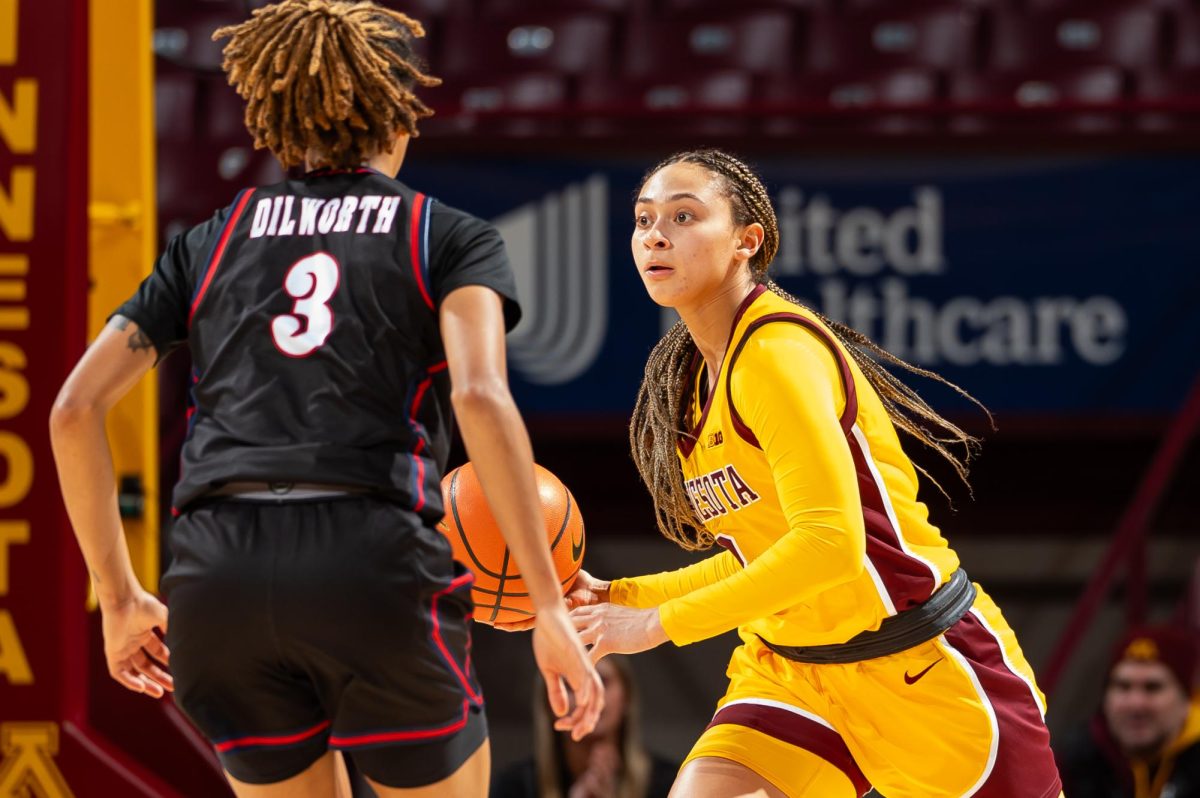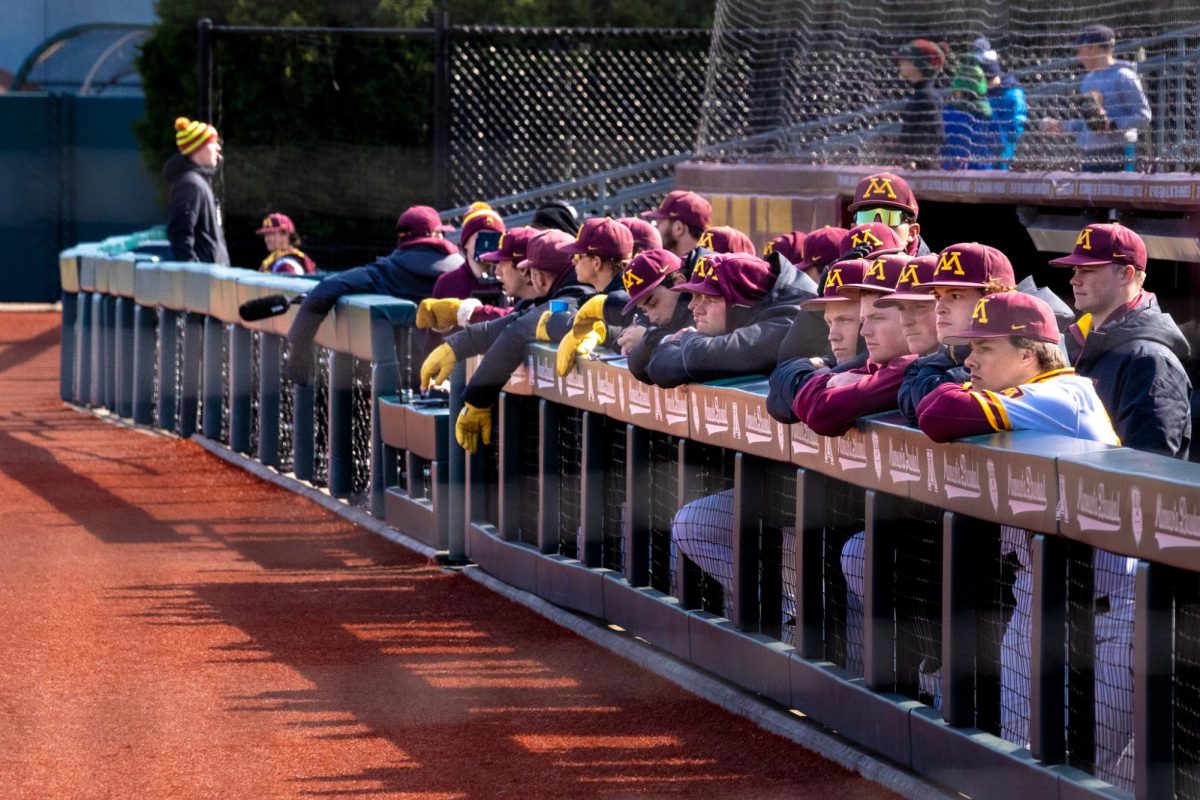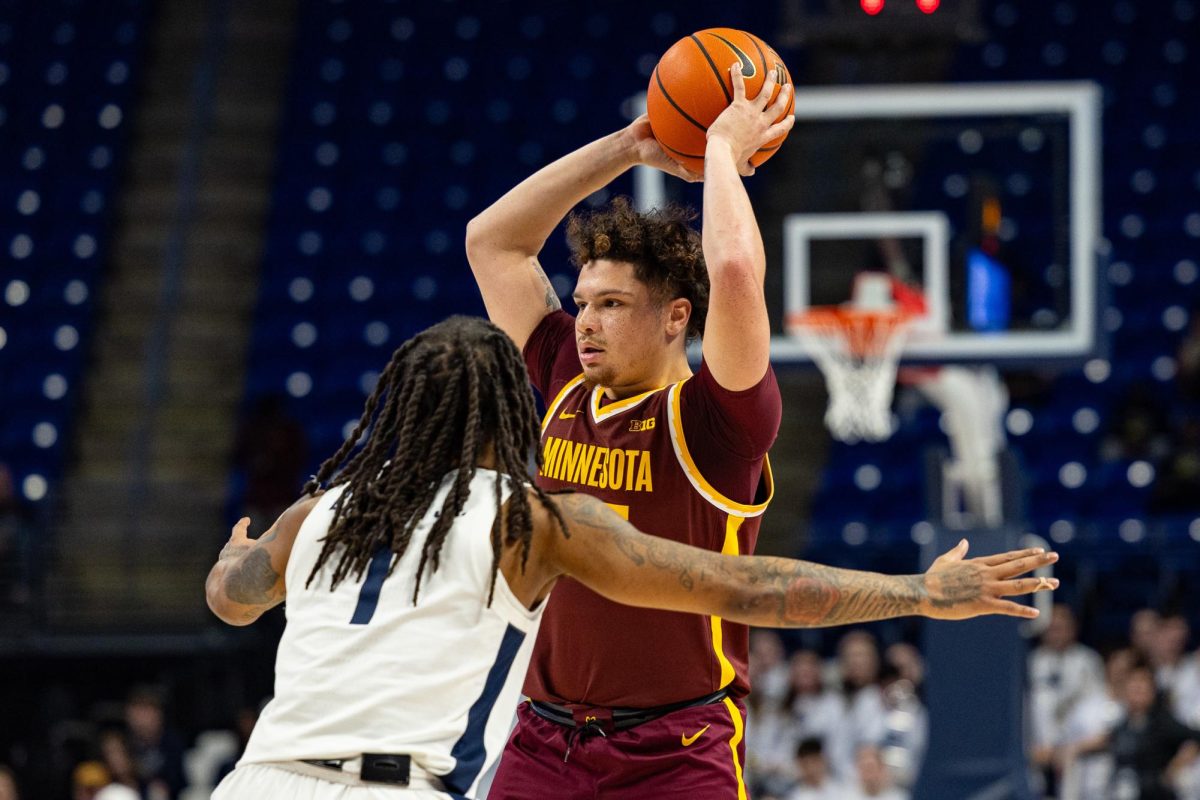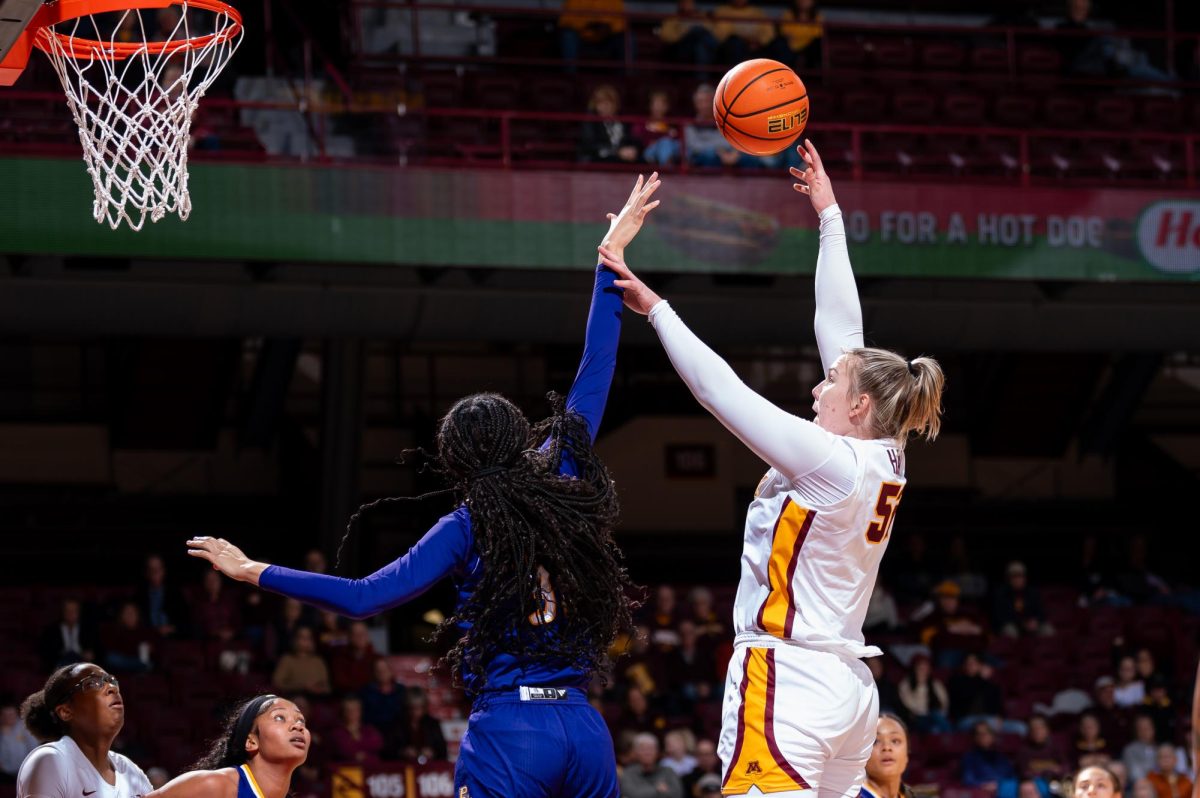Jerry Kill brought a wave of public relations backlash to Gophers athletics when he decided to cancel the football team’s two-game series with North Carolina — a move that cost the athletics department $800,000.
After word of the decision reached the public, Gophers athletics director Norwood Teague backed up Kill’s move.
Teague took to the radio stations, spoke with reporters and even wrote an email last week to about 300 of the Gophers’ top stakeholders to defend Kill’s decision.
“I felt like there was a [lack of] education about our decision,” Teague said. “I wanted to do our fans and some of our close stakeholders a favor.”
Teague sent the email Oct. 18, two days after the Gophers’ $800,000 decision made headlines.
In the email, Teague outlined “talking points” such as Kill’s winning history, Minnesota’s plan to fund the cost and the history of teams backing out of contracts with the Gophers.
“It would be wonderful if you could communicate these points when asked or involved in conversations,” Teague wrote.
Kristine Olson, a public relations professional with the advertising firm Campbell Mithun, said an organization’s best bet when faced with a dilemma is to get the facts out fast.
“If anything is controversial and you stay silent, your point of view will not be heard,” Olson said.
However, she said “talking point” communication is generally reserved for spokespeople who were involved in the decision, not the general season-ticket holder or donor.
“People who are not closely involved may need a little more explaining,” Olson said. “Usually it’s not ‘here are the talking points.’”
Teague admitted he may have crafted it differently given the chance.
“I felt right now it was the best possible scenario,” he said Monday. “But we probably shouldn’t label it ‘talking points.’”
Teague said he and his staff deliberately chose who got the email. He said he sent it to a few “faculty groups” and “a smaller group of stakeholders in hopes they could take it from there.”
Darren Kern, a Gophers season-ticket owner for 15 years, said he thought it was a poor choice to empower a “smaller group” with the talking points.
“It’s kind of a slap in the face, saying, ‘Your donations don’t mean anything if they’re not millions,’” Kern said. “I don’t donate millions of dollars, but I make some pretty hefty donations [to Gophers athletics].”
Kern, 42, said he agreed with Kill and Teague in canceling the UNC series.
Kern, an elementary school principal in Somerset, Wis., said he’s actually liked the Teague era so far.
“But it’s decisions like this that’ll change it pretty fast,” he said.
Bob Hughes, president of the Gophers football booster club, the Goal Line Club, was one of the few to receive the email.
“I stand by Norwood [Teague] 100 percent,” Hughes said. “It’s right in line with Jerry Kill’s game plan. He’s wanted to create his own nonconference schedule since he came here.”
Hughes, like the email, pointed to Kill’s winning record at other schools as evidence to stand behind the coach.
“I’m one of those guys that never second-guesses anyone,” he said.
Other season-ticket holders said it was a solid concept but 300 people is only a small start.
John Hartig, owner of six season tickets at TCF Bank Stadium, said he didn’t receive the email. But he called it “a pretty strong tactic, maybe a little over the top.”
Hartig, 43, from Apple Valley, Minn., said “sometimes extraordinary PR is needed” and said it didn’t matter to him that Teague didn’t reach out to him.
“I wish the University would get this information out in other ways” Hartig said, “by whatever means possible.”
Teague’s talking points
In an Oct. 18 email, Teague outlined eight talking points for roughly 300 of the Gophers’ closest stakeholders.
—Coach Kill has built championship programs at every stop in his career. He believes this decision is critical to the development of the Gophers football program at this particular point in time.
—To build a winning program, he is convinced that he first must establish a winning mentality and develop confidence in his players during the nonconference season.
—The Gophers’ Big Ten conference schedule will annually be among the nation’s most demanding, with traditional powers Michigan, Michigan State, Nebraska, Iowa and Wisconsin featured every year.
—The cost of this buyout will have no affect on the 24 other Gophers sports programs. There will be no adverse impact on the budgets of any other sports.
—No tax dollars or University funds will be utilized as part of our payments to UNC. Currently, the athletics department receives an allocation of 1.6 million from the University (each year) earmarked for deferred maintenance and other facility operation expenses. After this, athletics is financially self reliant for an $80 million budget. The payment will come from our self-generated funds.
—The $800,000 payment will be made over multiple years to defray the impact on our budget in any one fiscal year.
—We feel we can significantly offset this money in the future via scheduling and ticket sales.
—Over the past 15 years, the following schools have opted out on all or a portion of our football series with them: Iowa State, Baylor, Air Force, Washington State, Texas and Navy. So this is not an uncommon occurrence.







